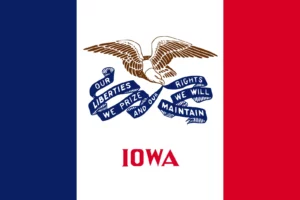 One month from now, all the speculation will begin to turn into something concrete: results.
One month from now, all the speculation will begin to turn into something concrete: results.
On January 15th, the first Presidential primary contest of the 2024 election is set to take place when Republicans hold their Iowa Caucus. Despite the Democratic Party demoting the Hawkeye State after their 2020 debacle, the GOP is keeping it as their ‘first in the nation’ primary season kick-off.
So with years of 2024 deliberation now behind us, we’ll finally get some actual election results to analyze and thus gain some proper guidance for the eleven months ahead.
Alright, now with all that in mind, what exactly is the state of play today in Iowa?
Well throughout 2023, Donald Trump has consistently held the top spot in Iowa polls, with his support hovering between the mid-to-high 40s. At this very moment, Trump sits at 47.9% and 50.0% respectively in the FiveThirtyEight and RealClearPolitics Iowa averages.
Meanwhile, Ron DeSantis spent this past year stuck in second and steadily losing ground. According to those same averages from FiveThirtyEight and RealClearPolitics, he’s currently at 19.4% and 19.7%, with Nikki Haley quickly gaining on him. In fact, the South Carolina Governor continues to climb up to 15.6% and 15.7% respectively in those Iowa averages.
Should Haley soon surpass DeSantis in Iowa, it would be particularly devastating for the Floridian, as he’s made that state the centerpiece of his campaign.
Essentially, DeSantis is seeking to replicate Ted Cruz’s 2016 presidential strategy, right down to bringing in Cruz’s campaign manager Jeff Roe to run DeSantis’ Super PAC. The idea is to mostly avoid attacking Trump directly, and instead focus on courting the support of local conservative and religious leaders.
As you might remember, of course, while this battle plan did carry Cruz to an Iowa Caucus victory in January 2016, he still fell far short against Trump in the war for the GOP nomination. Why did DeSantis choose a path that had already failed once before against Trump? It’s unclear, but the best explanation might be that his campaign believes insulting Trump will only turn off his base of supporters.
Conversely, Haley is running more of a confrontational campaign against the front-runner, painting the 77 year-old (who’s under four separate criminal indictments) as too controversial and mired in the past to win in November. Such tactics have allowed Haley to pull in a healthy share of the Never-Trump and Trump-skeptical Republicans, giving her what George H.W. Bush once memorably called “The Big Mo”.
The pivotal question, however, is how many potentially Trump-adverse voters are actually even still in the Republican party. After all, while Haley’s support is growing, she’s still around 50 points behind Trump in the national averages.
Therefore, does Haley really have a viable path to the nomination? Well, if she can finish ahead of DeSantis in Iowa, perhaps she can then leverage that into an even stronger second place showing in New Hampshire, where she’s polling even better. After a stop over for the Nevada caucus, the campaign would then turn to her home state of South Carolina, where she’s counting on an upset win that will shatter Trump’s perception of invisibility.
Now, obviously, such a strategy contains plenty of flaws. Right off the bat, spinning three straight second place finishes as a positive sounds like a stretch, to say the least. Nevertheless, it still seems more plausible than DeSantis’ plan of somehow winning Iowa.
Furthermore, the longer DeSantis and Vivek Ramaswamy stay in the race, the more votes they stand to take away from Trump. On the other hand, Chris Christie remains a real impediment to Haley; especially in New Hampshire, where he’s managed to climb to third place, even as he struggles to break out of the margin of error everywhere else.
Finally, we should touch on the actual caucus process for Iowa Republicans, which is fairly straightforward. Rather than the complex system formerly used by Iowa Democrats, the Iowa GOP employs a simple secret ballot. 40 delegates will be up for grabs, and unlike some other states, Iowa awards them proportionally.
As for the rest of the primary calendar, make sure to keep an eye out, because I’ll have a comprehensive timeline of the 2024 Presidential primaries coming soon.